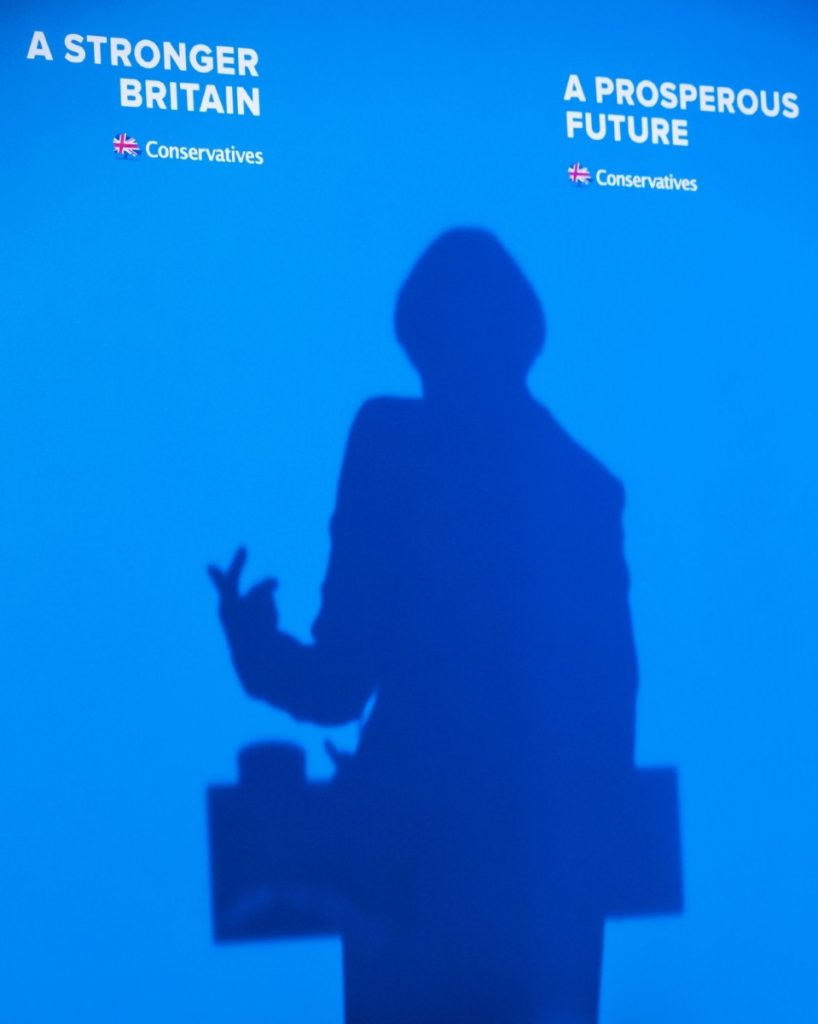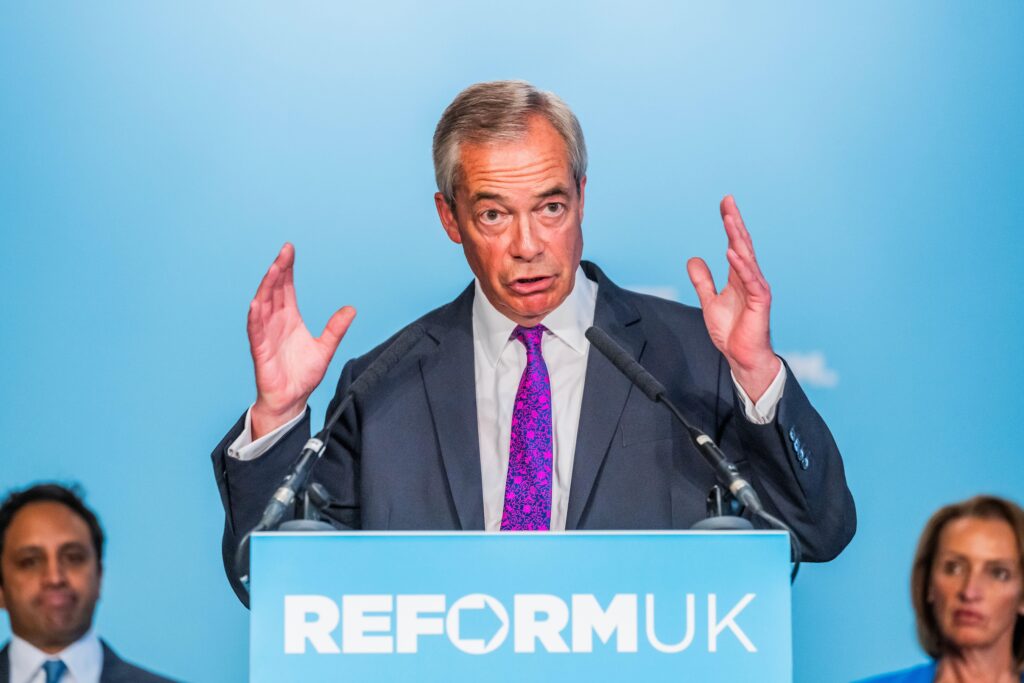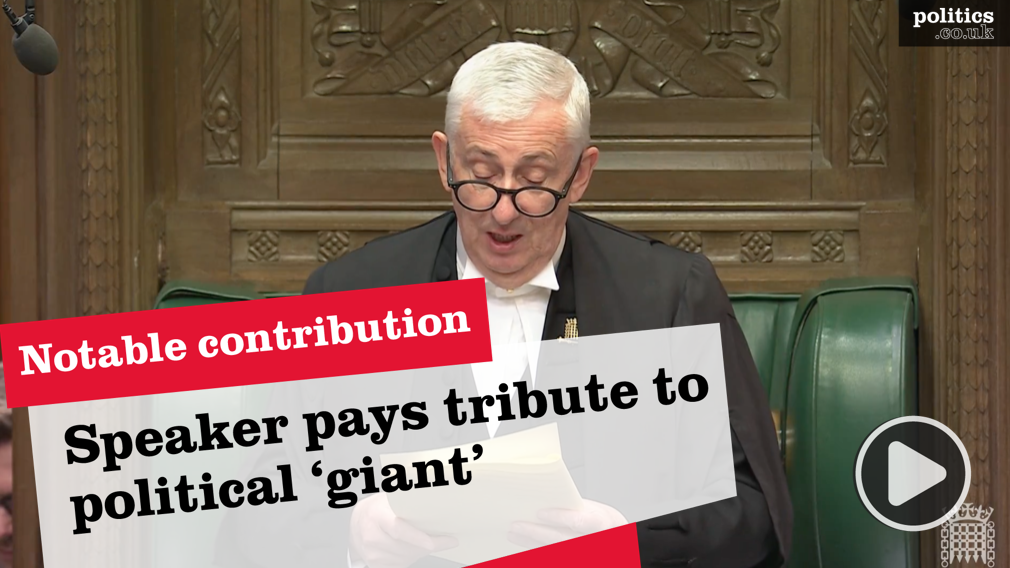There's a strange disconnect between Theresa May's presentation of her manifesto and the actual content. Brexit, she said on stage in Yorkshire, is "the central challenge we face". And yet the Brexit section of the manifesto is really rather short and lacking in detail.
On first sight, that's totally in line with her general attitude to the issue. She has long said that she can't give away details of her approach or else she'd lose leverage. But keeping details out of the manifesto has consequences in terms of negotiating Brexit. Namely, it stops her weakening the Lords.
This was supposed to be one of the primary reasons she was holding an election. When she emerged from Downing Street on the day of the announcement, she insisted she was doing it to stop domestic saboteurs from obstructing Brexit and explicitly mentioned the House of Lords as an example.
This manifesto provided an opportunity to do that. Under the Salisbury Convention, the Lords cannot reject a government bill which has been "foreshadowed" in the governing party's manifesto. If May really thought peers were trying to stop Brexit, putting details of her plan in the manifesto would have been a good way to block them from doing so.


Even if she didn't think so (she probably doesn't) it would prevent them slowing everything down. The Lords like to take their time with things and really dig into the details. That's not ideal with a huge project operating to a two-year timetable.
The fact May has not gone into considerable detail is therefore telling. She has chosen not to muzzle the Lords. The closest she comes is when she explicitly and without caveats says Britain will leave the single market and customs union. There is no more talk of a half-in-half-out arrangement with regards to either.
This could be said to "foreshadow" any number of bills or difficult parliamentary battles, for instance on a hard border in Ireland or the reintroduction of country-of-origin requirements, both of which follow from our decision to leave the customs union. But because it is so vague, Lords will find it pretty easy to get involved.
It is the same all over the manifesto. There is a page or two on trade, for instance, but with very little concrete detail. This again allows the Lords to interfere. They could, for instance, vote against a bill which would allow the importing of chlorine-washed chicken, which would prove a stumbling block in trade negotiations with the US. A more detailed manifesto would have prevented that. May seems to prefer the advantage of keeping her cards close to her chest than the advantage of binding the Lords.
There had been concerns that May might try to make the Lords completely impotent over the great repeal bill by barring them from addressing statutory instruments – clever little bits of law which allow ministers to change legislation without a full debate. The manifesto contains no provisions for comprehensive reform, although it does darkly allude to plans which would ensure the Lords "continues to fulfil its constitutional role as a revising and scrutinising chamber which respects the primacy of the House of Commons". Still, this appears to refer to size rather than powers.
The election was a chance to take on all her parliamentary critics – the ones in the Commons via a stomping majority and the ones in the Lords by the clever use of Salisbury and reform of their ability to scrutinise statutory instruments. She's on course for the first, but not the second.
Elsewhere, there is evidence that May is preparing the ground for some pretty major concessions in Brexit talks. The document says repeatedly that she wishes to "deliver a smooth and orderly departure from the European Union". That seems to rule out – or at least play down the chances of – a no-deal outcome.
She pledges to "secure the entitlements" of EU nationals in the UK and UK nationals in the EU. This is quite revealing in its wording. Europe wants to secure all manner of guarantees for its citizens in the UK, including things like health care and the right to be joined by family. That makes the issue much more complex than British ministers had realised and creates some politically unpalatable outcomes, like giving EU citizens greater rights than UK ones or granting the European Court of Justice jurisdiction over the terms of the arrangement. May could have restricted the wording to just 'residency status' here, but instead has gone for 'entitlements'. That doesn't exactly confirm that the UK government intends to preserve all their rights, but it suggests that that's the way they're going.
On the budget, which is expected to be a major bust-up at the start of negotiations, the wording of the manifesto is also revealing.
"We will determine a fair settlement of the UK's rights and obligations as a departing member state in accordance with the law and in the spirit of the UK's continued partnership with the EU."
That sounds quite a bit like capitulation, albeit presumably on a tolerable payment timetable.
So the overall direction of travel looks this afternoon a lot less like no-deal than it did yesterday. But it's hard to be too confident in any assessment. Partly, that's because the manifesto is lacking in any real detail. And secondly it's because many bits of it contradict themselves, or are so ambiguous as to lack meaning.
It says, for instance, that Brexit must be "smooth and orderly" but also that "no deal is better than a bad deal". It says we are leaving the customs union but that "as frictionless a border as possible" should be maintained in Ireland. None of these ideas really fit together.
Even more tellingly, it says that "workers' rights conferred on British citizens from our membership of the EU will remain" after Brexit and that "protections given to consumers and the environment by EU law will continue to be available in UK law". But then it says:
"Once EU law has been converted into domestic law, parliament will be able to pass legislation to amend, repeal or improve any piece of EU law it chooses."
Presumably that includes the workers' rights, environmental standards and consumer protections the Conservatives are supposedly guaranteeing. Again, it just doesn't fit together. May is trying to placate everyone at the same time – the right-wing Brexit head-bangers and former Labour voters. Who'll eventually win is anyone's guess.
But overall, this is a pretty tolerable manifesto for critics of Brexit, given the circumstances. There are no black-and-white pledges which would make a no-deal outcome more likely, as there were in those early aggressive days at the Tory conference. There are no firm details aimed squarely at weakening the Lords, or outright attempts to muzzle the second chamber. And there are areas where the government seems to be preparing to give ground in negotiation.
But that old question remains, as it always does with May: does she have any idea what she's doing? Maybe she isn't being strategic, but simply inept. Maybe she has no sense of how important the wording is, or what she could have done to control the Lords, or even why the things she says seem to contradict one another. There is nothing in this document to confirm this issue one way or another. It seems we'll have to wait until negotiations start to find out whether the vagueness of her Brexit policy is tactical or merely ignorant.
Ian Dunt is the editor of Politics.co.uk. His book – Brexit: What The Hell Happens Now? – is available now from Canbury Press.
The opinions in politics.co.uk's Comment and Analysis section are those of the author and are no reflection of the views of the website or its owners.












